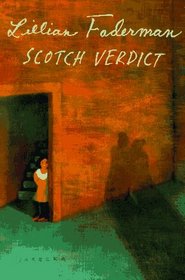Helpful Score: 1
Faderman reconstructs and examines one of the famous legal trials in lesbian and gay history. Two Scottish schoolmistresses were accused of having sex with each other by one of their students. Ultimately, the trial concluded with a "scotch verdict" - "a verdict of not proven or an inconclusive decision." The court declined to convict the two ladies because it was quite unsure if two women could have sex with each other.
I have not read this book I have to admit. However, Faderman always writes compelling and interesting books.
I have not read this book I have to admit. However, Faderman always writes compelling and interesting books.
Nan A. (nanhum) reviewed Scotch Verdict: Miss Pirie and Miss Woods v. Dame Cumming Gordon on + 7 more book reviews
Faderman recounts the true story of the life and trial of two Scottish school mistresses in the early 19th century who lose their livelihood when one of their students accuses them of having sex with one another in the bed the student shared with one of the school mistresses. Each mistress slept in one of the two rooms of the students who boarded at the school in order to supervise them and each one shared a bed with one of the students. The accuser's grandmother pulls the student and her cousin who also boarded at the school and also informs other parents of the accusation who then remove their girls. The school mistresses sue the grandmother for defamation and loss of livelihood. The trial and its appeals took more than a decade to be resolved. The title of the book is based on the term "Scotch Verdict" which means that evidence is inconclusive or an accusation could not be proven. Faderman visited Scotland to get the transcripts of the trial and learn any other information she could on the parties of this sad affair. Perhaps what is so remarkable is the prejudice and ignorance of the sitting judges. Their phallic centric views of sex prevented them from even imagining two women could engage in sexual relations with one another. But that did not prevent some of them from believing that something untoward did transpire between the women. Faderman, using a literary device of conversations between herself and her partner who had joined her in the research, take on the opposing positions of what might have or have not occurred between the women--seen through present day sensibilities as well as how it could be perceived in the days when "romantic friendships" between women was not only accepted but approved of. A fascinating and ultimately tragic story worthy of historical study.




